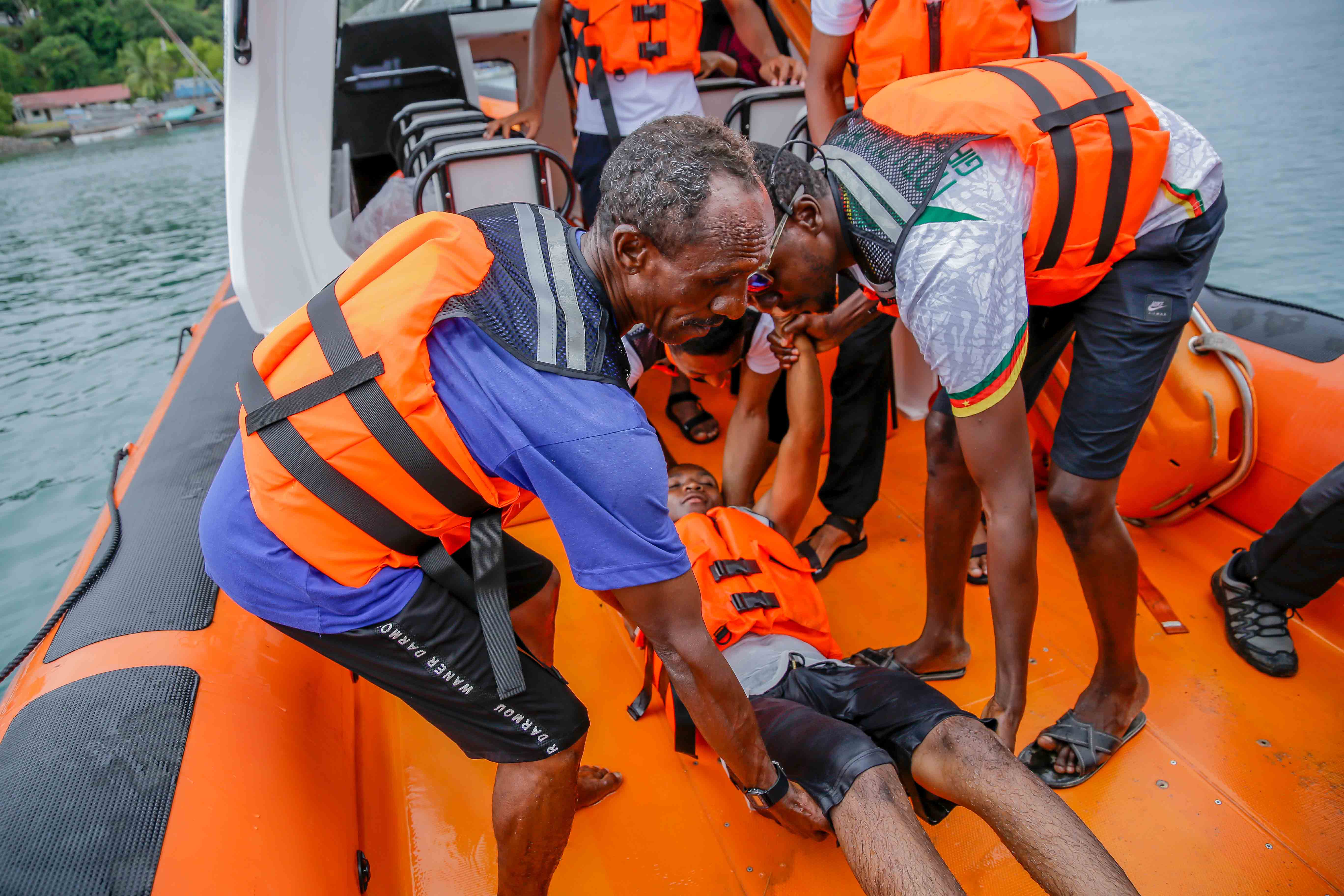
In a coordinated effort to enhance maritime safety along Kenya's coast, Expertise France, with financial support from the European Union, has rolled out a series of intensive Search and Rescue (SAR) training programs over the past weeks. Bringing together various key maritime stakeholders, including the Kenya Maritime Authority (KMA), the Kenya Coast Guard Service, the Kenya Red Cross and the Kilifi County Rescue Team, this initiative equips their personnel with essential SAR skills. The trainings utilize four of the five new SAR boats recently donated to KMA, representing a significant upgrade in the region’s rescue capabilities.
Building trust and expertise: the foundation of effective SAR operations
"This training aims to prepare Search and Rescue teams by building trust among various organizations involved," explains Didier Fourmont, a trainer working with Expertise France. "Within these teams, everyone has a very specific role on board. And all the roles combined make it possible to form a team capable of carrying out search and rescue operations at sea."
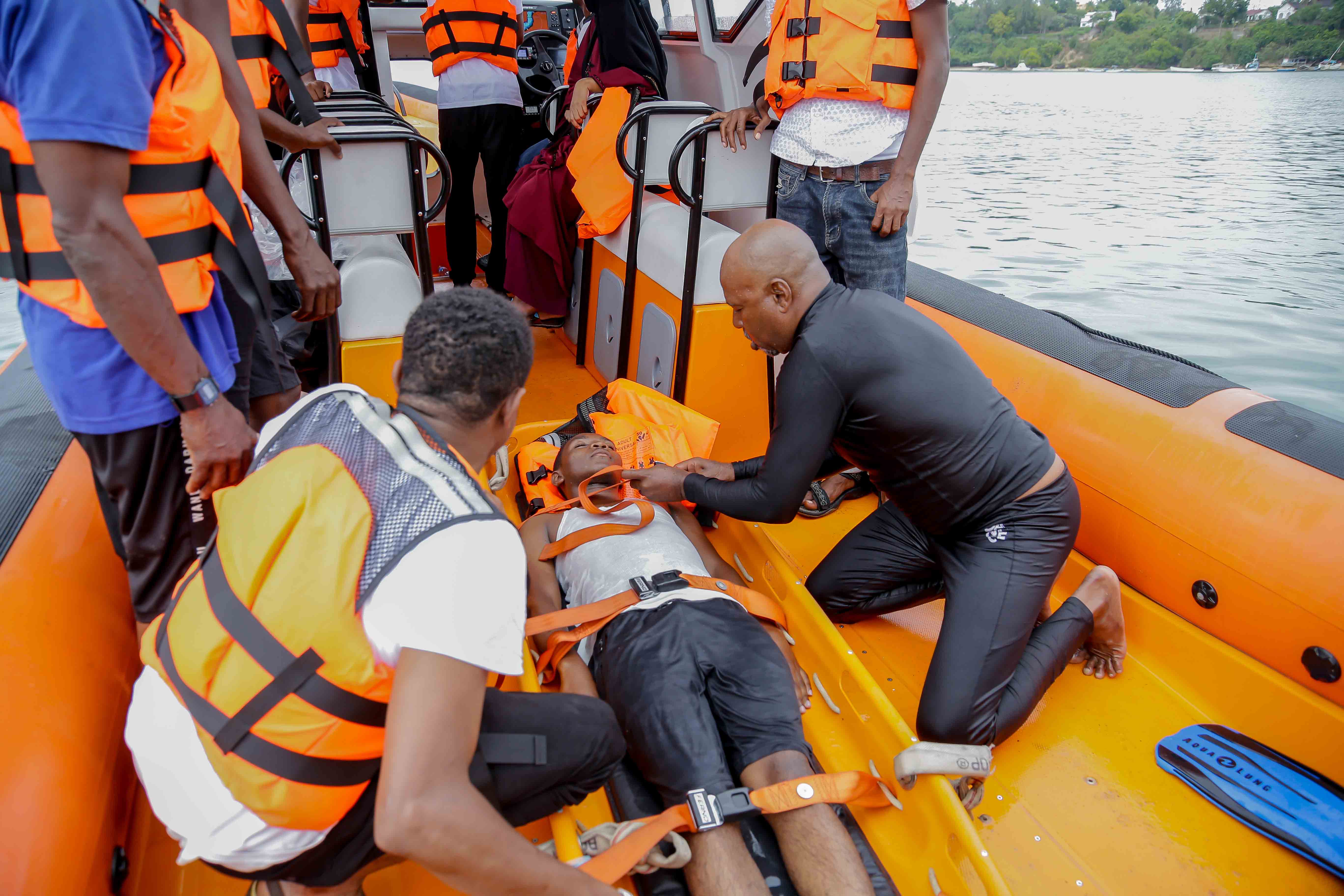
The eight-week program offers a comprehensive curriculum, combining some theoretical knowledge with mostly hands-on exercises. Introducing five new SAR boats – two big and three small – is a game changer. The versatility of these boats allows them to operate efficiently, both close to the shore and in deeper waters. The advanced electronic equipment onboard ensures that they can navigate safely away from the coast and perform well under challenging weather conditions. Their size and adaptability also make them suitable for deployment across various counties along Kenya's coastline.
Collaboration at sea: a multi-agency approach
A significant outcome of this training has been the enhanced collaboration between different maritime agencies. "The new SAR boats have made our work much easier. When a distress signal is received, we can now reach the location in less than 10 minutes - a significant improvement from the 30 minutes it used to take," explains Hamadi Mumbo Mwachiti from the Kenya Maritime Authority.
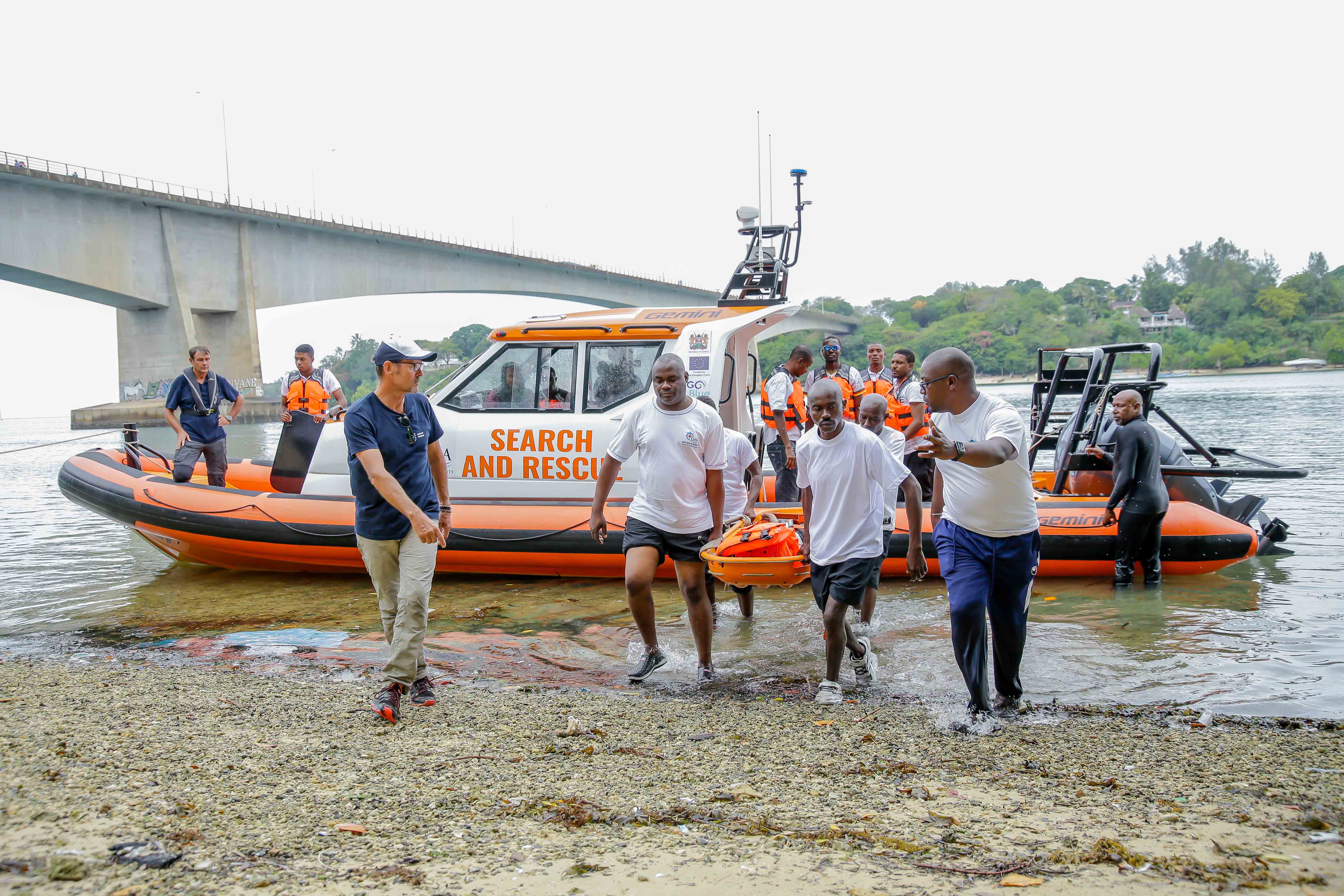
This multi-agency approach has cultivated a strong sense of unity among participants. "We have individuals from different organizations working together, and that cooperation has made us more efficient," Hamadi adds. "Everyone knows their role, and the teamwork has been exceptional."
The ultimate goal: saving lives
The participants have gained invaluable skills during this training, especially practical skills acquired during the various drill exercises. "The training has taught us how to rescue injured persons from the water, lift them onto the boat, and evacuate them to land for further medical assistance. It has also given us a chance to learn about maritime laws and regulations, and to build relationships with colleagues from other agencies," says Said Abdurrahman Omar from the Kenya Red Cross.
Anwar Abdulla from the Kenya Coast Guard Service echoes this sentiment: "At first, I didn't have much experience in Search and Rescue, but this training has equipped me with the necessary skills. I now feel confident operating the boat in all sea conditions, including rough waters. With the knowledge I've gained, I am prepared to handle any emergency situation with precision and care."
“The safety of people at sea is the responsibility of everyone, and we are pleased to see such a strong collaboration between KMA, KCGS, the Red Cross, and county teams," tells Jérôme Michelet, maritime organization expert with Expertise France. "The best outcome we will see from these boats is that they are going to save lives. That is paramount," Jérôme affirms.
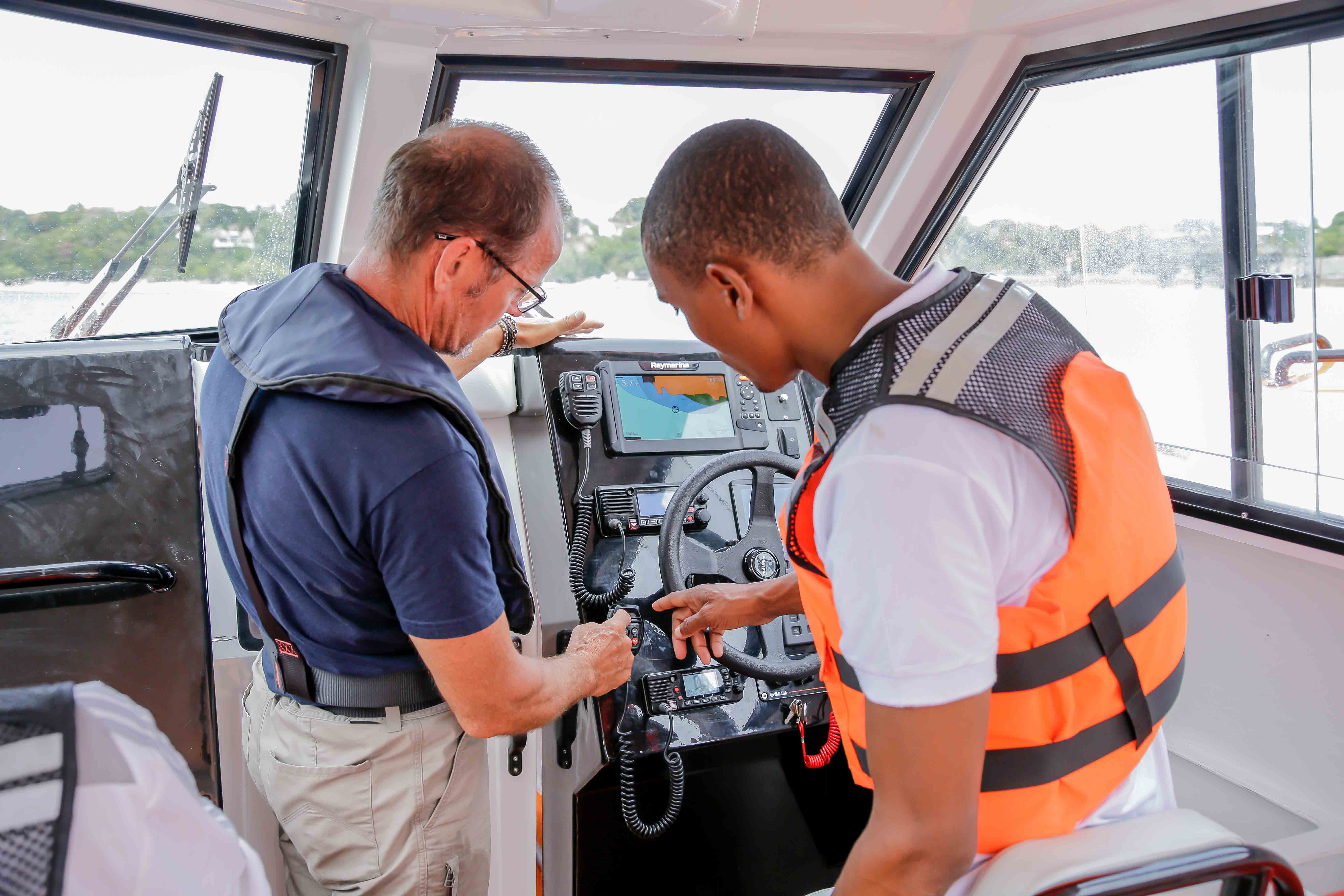
As the training concludes, the newly trained teams are ready to be deployed along Kenya’s coastline. Equipped with the latest SAR technology and enhanced skills, they stand as the guardians of Kenya's maritime safety, prepared to respond swiftly and effectively to any emergency at sea.
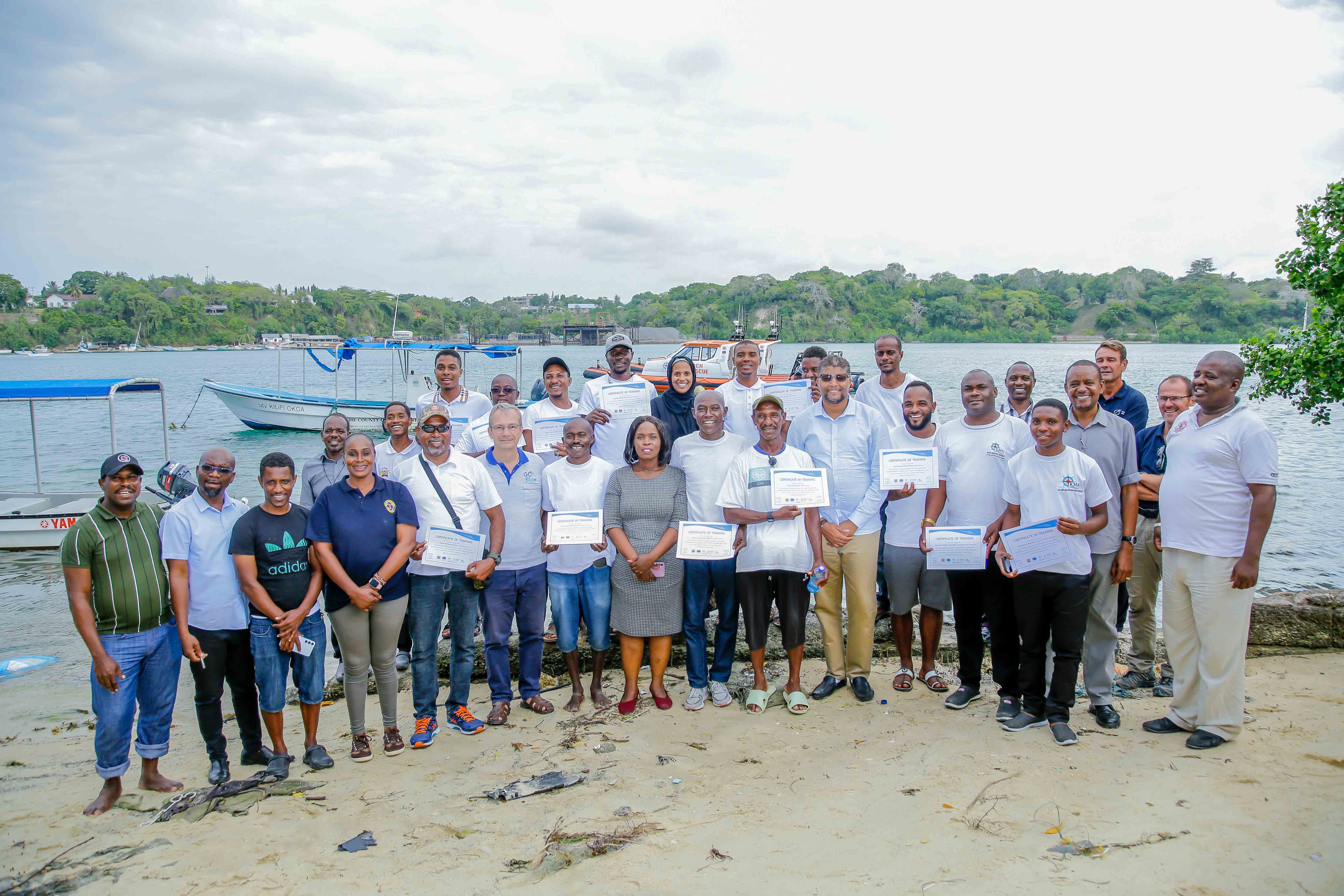
Click the link below to watch a video clip on the SAR training program: